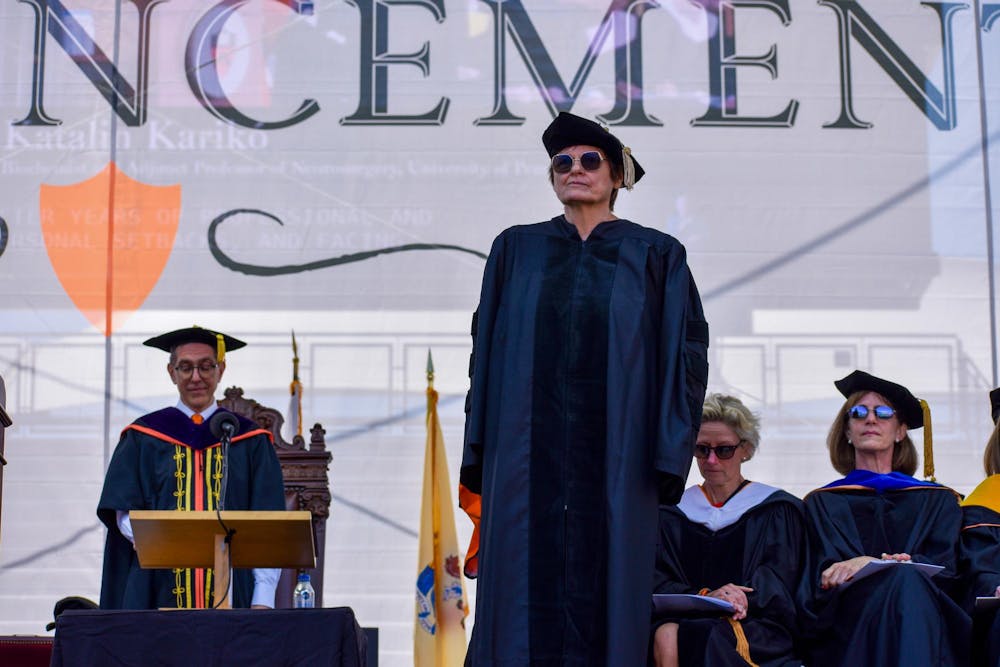It has been an eventful few years for Dr. Katalin Karikó. After pioneering the mRNA technology behind the SARS-CoV-2 vaccine with immunologist Dr. Drew Weissman in 2005 — over a decade before the COVID-19 pandemic — Karikó received an honorary degree from Princeton in May 2023 at Commencement.
Four months later, she and Weissman were jointly awarded the 2023 Nobel Prize in Medicine “for their discoveries concerning nucleoside base modifications that enabled the development of effective mRNA vaccines against COVID-19,” per the Nobel Prize press release.
Honorary degrees are awarded by a committee which consists of trustees and members of the Committee on Governance of the Council of the Princeton University Community (CPUC). This committee makes recommendations to to the full Board of Trustees, who make the final approval. Karikó has 16 honorary degrees, including degrees from Yale, Harvard, and Rutgers.
Karikó did not respond to a request for comment at the time of publication.
The research began with an unwavering belief in the power of mRNA, a biological molecule involved in protein synthesis. They believed that mRNA had the potential to be an effective therapeutic for an array of diseases, starting with an HIV vaccine.
While promising in theory, the long-standing belief that this class of molecule was too unstable to work with presented a significant hindrance to their work. Since mRNA injected into a cell lacked the same transport mechanisms as mRNA already in the cell, the potential of RNA was frequently dismissed.
Given these challenges, Karikó was unable to receive funding for her work, and the University of Pennsylvania, where she was working at the time, demoted her and eventually forced her to retire.
Nonetheless, Karikó and Weissman persisted, ultimately determining the chemical modifications necessary to prevent foreign mRNA from being degraded by the cells to which they were introduced.
The discovery of these properties of mRNA faced yet another challenge: they did not progress past clinical trials for cytomegalovirus or the flu at Moderna and BioNTech.
As COVID-19 took its toll, Karikó and Weissman targeted the characteristic spike protein of SARS-CoV-2 and designed a novel vaccine for an urgent public health threat.
BioNTech and Moderna would be the first to develop COVID-19 mRNA vaccines widely available to the public — with BioNTech partnering with Pfizer to produce their vaccine.
Looking to the future, these mRNA modifications hold promise for the next frontier in personalized medicine as it pertains to the treatment of certain cancers.

University faculty have previously received two Nobel Prizes in Medicine or Physiology. These laureates are molecular biology professors Eric Wieschaus and James Rothman in 1995 and 2013, respectively.
Last year, professor and Emeritus Chair of the Department of Economics Ben Bernanke was awarded the Nobel Prize in Economics along with economics professor Philip Dybvig.
Anika Buch is the Research Editor at the ‘Prince’ who typically covers STEM communities and on-campus research. She can be reached at ambuch@princeton.edu.








